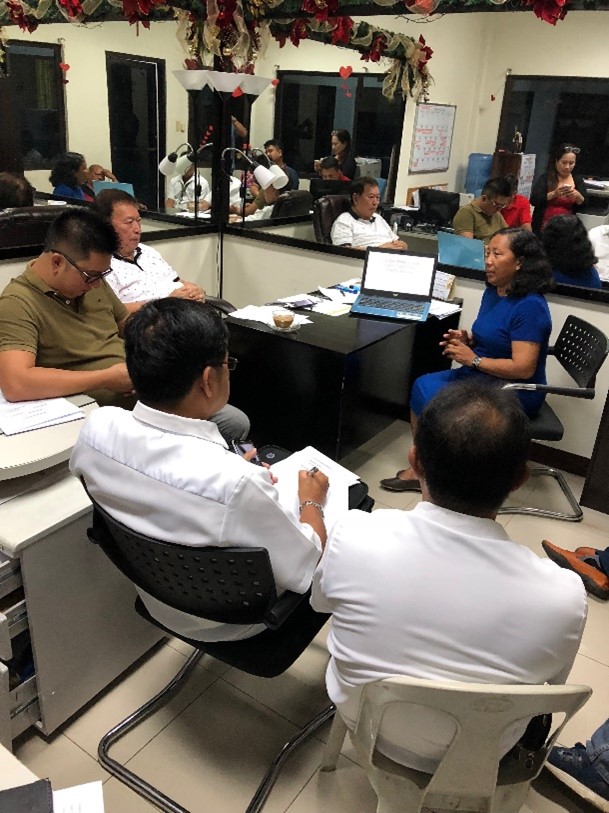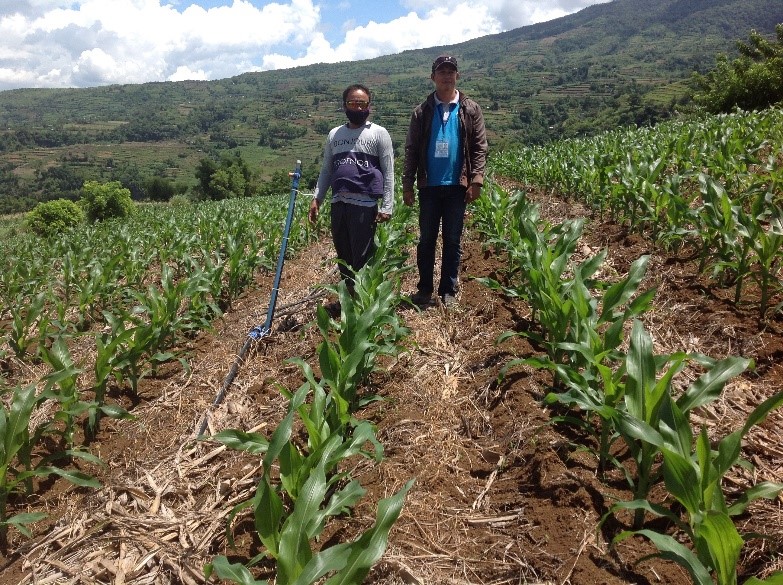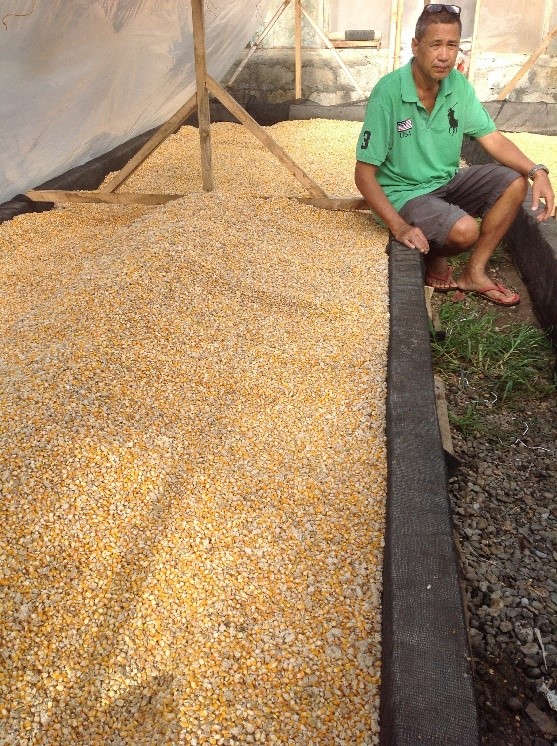
Problem: the mountain terrain of much of Negros is used by subsistence farmers growing various upland crops including maize on land received through land reform or on stewardship within the national park. The Negros Island prohibits the use of Genetically Modified Organism (GMO) varieties of any crop including corn. GMO maize were developed to be resistant to corn borer and the herbicide, glyphosate. Inspite of the ban on GMO use, more farmers are opting to use GMO or its succeeding generations locally known as “ sigue-sigue”. Hence, this trial to determine the pros and cons of this technology.
Outcomes: SPSI’s partner in Negros the Philippines, PSRTC is restoring severely eroded misused soils through minimum strip tillage and leaving crop residue on the surface. This along with the use of herbicides has permitted excellent weed control, especially on the early stage of crop development. In this context, research on the use of GMO maize was tried in collaboration with the Provincial Agriculture office. The results were astounding with yields over 10 tonnes/hectare!
Figure 1. Dr. Demonteverde and a field of GMO maize at Pula, Negros, The Philippines
PSRTC has as its mission to help farmers by providing them with new improved agronomic technologies. The rough hilly topography of the area in eastern Negros coupled with intensive plowing of the land has lead to severe erosion and compacted hard dead soils. It was in this context that a demonstration area was established to do strip tillage, leave the crop residue on the soil surface, adjust the soil pH and add manure/compost to these soils. After 7 years of doing this it was decided to also see if along with soil restoration, we could introduce the use of better genetics to improve maize yields.

Figure 2. Dr. Demonteverde speaks with Provincial board members, for Committee on Agriculture, including Hon. Valente Yap and Hon. Chester Lim along with DA personnel (not shown in the picture).
The Department of Agriculture (DA) leaders for the province requested Dr. Demonteverde to speak regarding this issue with members of Provincial Council members on the Agriculture Committee along with a representative from the Department of Science and Technology in February 2020. The discussions at that meeting permitted the DA to cooperate with PSRTC in doing a trial with GMO corn to study the advantages and safety of this technology. The Committee was astounded to know that this technology has been adopted for 25 years in many countries including on some other islands in the Philippines.
In June 2020, DA provided GMO maize seed to PSRTC to do a trial on growing the crop on different portion of the farm. Some crops on strip tilled land whereas, others in sloping farm lots. Open-pollinated (OP) white corn was also planted in different field lots. The recommended fertilizer inputs were applied in furrow. The crops were grown during the rainy season with reduced solar radiation. Weed control was perfect with the use of Glyphosate herbicide. Corn borers were only observed in a few of the GMO plants. Weeds grow quickly and abundantly in OP corn resulting in reduced growth and yield.

Figure 3. DA personnel including Ryan Jasper Solinap & Cipriano Quirnte inspect the GMO maize growing in a strip-tilled field with organic mulch on the surface.
Harvest was done in late September and early October. Yields were taken from samples of 3 x 5 meter areas in the field using crop cut method. Computed yields ranged from 9.8 to 14.1 tonnes/ hectare on a dry weight basis of 14% moisture content of the grain. This yield was comparatively high compared to an average yield of corn in Canlaon City which is 1t/ha.

Figure 4. Regie Demonteverde with the dried GMO maize in a greenhouse.
Roadblocks remain with the provincial legislature not yet willing to allow the use of GMO technology. The present Secretary of Agriculture for the Philippines is also a strong supporter of technology for attaining self-sufficiency in feedstocks for the multiple animal farms in the country. Continued education and lobbying will be required to overcome this hurdle.